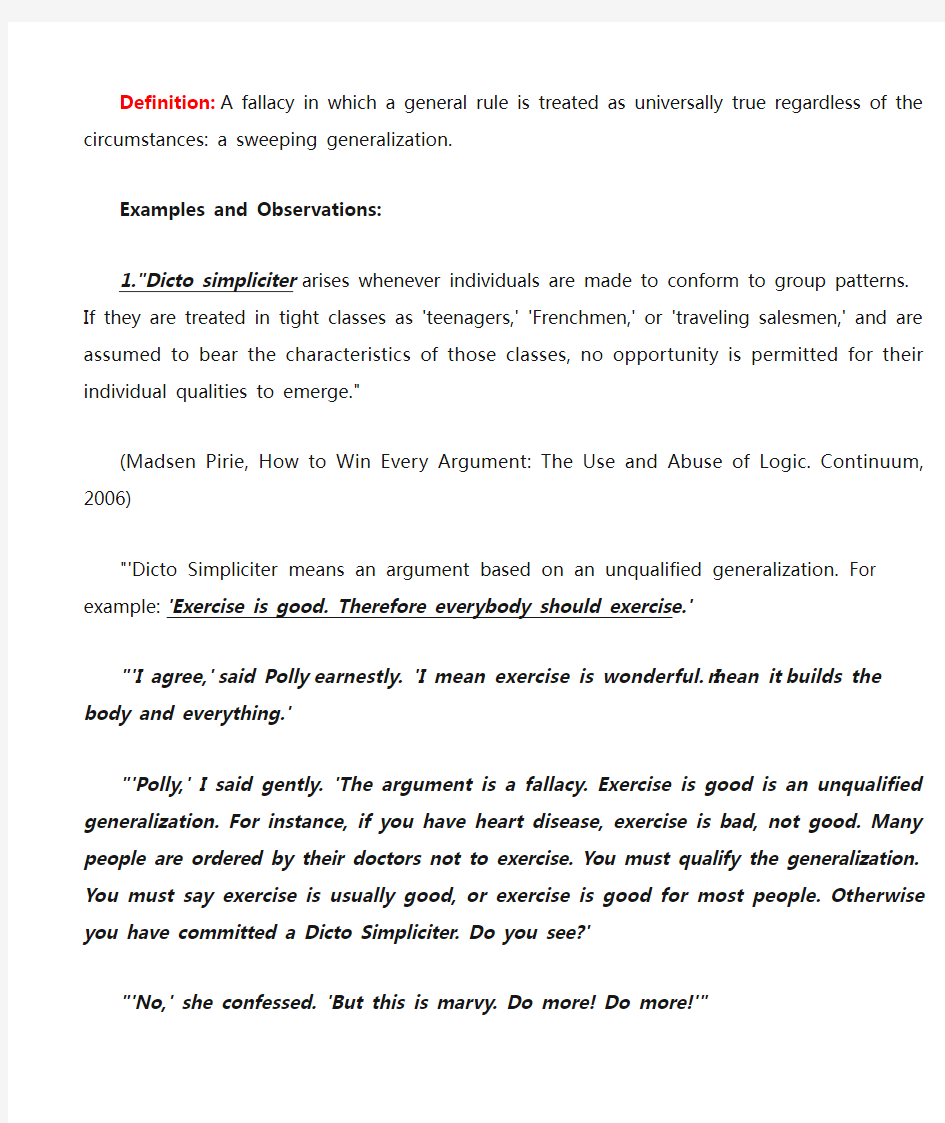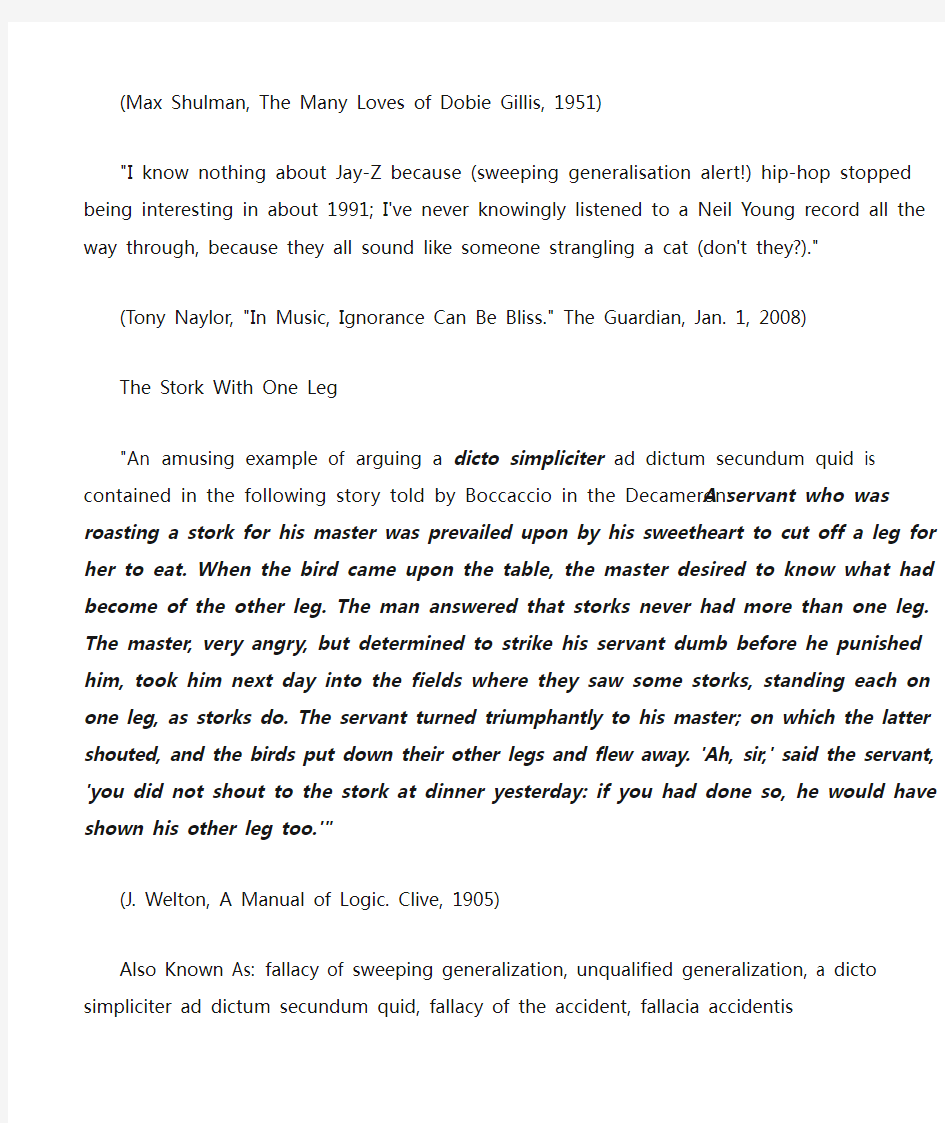dicto simpliciter


Definition: A fallacy in which a general rule is treated as universally true regardless of the circumstances: a sweeping generalization.
Examples and Observations:
1."Dicto simpliciter arises whenever individuals are made to conform to group patterns. If they are treated in tight classes as 'teenagers,' 'Frenchmen,' or 'traveling salesmen,' and are assumed to bear the characteristics of those classes, no opportunity is permitted for their individual qualities to emerge."
(Madsen Pirie, How to Win Every Argument: The Use and Abuse of Logic. Continuum, 2006)
"'Dicto Simpliciter means an argument based on an unqualified generalization. For example: 'Exercise is good. Therefore everybody should exercise.'
"'I agree,' said Polly earnestly. 'I mean exercise is wonderful. I mean it builds the body and everything.'
"'Polly,' I said gently. 'The argument is a fallacy. Exercise is good is an unqualified generalization. For instance, if you have heart disease, exercise is bad, not good. Many people are ordered by their doctors not to exercise. You must qualify the generalization. You must say exercise is usually good, or exercise is good for most people. Otherwise you have committed a Dicto Simpliciter. Do you see?'
"'No,' she confessed. 'But this is marvy. Do more! Do more!'"
(Max Shulman, The Many Loves of Dobie Gillis, 1951)
"I know nothing about Jay-Z because (sweeping generalisation alert!) hip-hop stopped being interesting in about 1991; I've never knowingly listened to a Neil Y oung record all the way through, bec ause they all sound like someone strangling a cat (don't they?)."
(Tony Naylor, "In Music, Ignorance Can Be Bliss." The Guardian, Jan. 1, 2008)
The Stork With One Leg
"An amusing example of arguing a dicto simpliciter ad dictum secundum quid is contained in the following story told by Boccaccio in the Decameron: A servant who was roasting a stork for his master was prevailed upon by his sweetheart to cut off a leg for her to eat. When the bird came upon the table, the master desired to know what had become of the other leg. The man answered that storks never had more than one leg. The master, very angry, but determined to strike his servant dumb before he punished him, took him next day into the fields where they saw some storks, standing each on one leg, as storks do. The servant turned triumphantly to his master; on which the latter shouted, and the birds put down their other legs and flew away. 'Ah, sir,' said the servant, 'you did not shout to the stork at dinner yesterday: if you had done so, he would have shown his other leg too.'"
(J. Welton, A Manual of Logic. Clive, 1905)
Also Known As: fallacy of sweeping generalization, unqualified generalization, a dicto simpliciter ad dictum secundum quid, fallacy of the accident, fallacia accidentis
